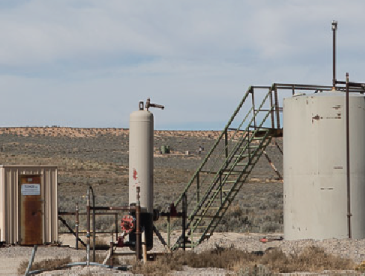
Cutting methane pollution to slow climate change
The problem: Methane pollution released this year will warm the planet more in the next decade than carbon dioxide emitted from burning fossil fuels. While cutting methane is the single fastest way to slow the rate of global warming, current efforts fall far short of the drastic reductions we need.
What we’re doing about it: Through research and advocacy, we’ve been driving global action to cut methane pollution for over a decade, and we built a methane-tracking satellite to help scale reductions worldwide. Our goal is to reduce global methane emissions from the energy and agricultural sectors by at least 30% below 2020 levels by 2030.
Our work slashing global methane emissions
- Article
How do you locate a hidden environmental danger? Put a bounty on it.
- Overview
Our cutting-edge science is guiding global action to cut methane emissions
- Article
In India, an environmental solution that’s good for farmers, cows and climate
- Article
Canada moves to limit planet-warming methane pollution
- Analysis
What MethaneSAT observations reveal about methane in the Permian Basin
- Blog post
Japan’s urban methane study shows data gaps and mitigation opportunities
Updates
Read the latest articles, blogs and press releases on methane.
-
The Colorado Public Utilities Commission Should Reconsider its Inadequate Pipeline Leak Repair Standards
Blog post, -
Canada’s Methane Opportunity and Canadian Jobs Hinge on Strong Alberta Implementation of Federal Methane Rules
Blog post, -
Colorado moves to cut landfill pollution
Article, -
Tackling Methane isn’t just good for the climate — it disproportionately protects the global poor
Blog post, -
Colorado sets leading standards for cleaning up landfill methane
Blog post, -
Three things to know about Canada’s new oil and gas rules
Blog post,
Methane pollution resources
Dig deeper into our work with these resources for researchers, policymakers, journalists and communities.
- Overview
Helping livestock farmers cut methane emissions
- Timeline
Our groundbreaking push to cut methane on 3 critical fronts
- Explainer
Methane: A crucial opportunity in the climate fight
- Initiative
How we’re partnering with global dairy companies to cut methane emissions
- Project
Slow global warming fast with MethaneSAT
- Explainer
How methane harms our health and what we can do about it
Our methane experts
Staff perspective
By emitting even a little bit of methane, humankind is greatly accelerating the rate of climate change.
Steven Hamburg
Chief Scientist
Media contact
Lauren Whittenberg
(512) 784-2161 (office)





















